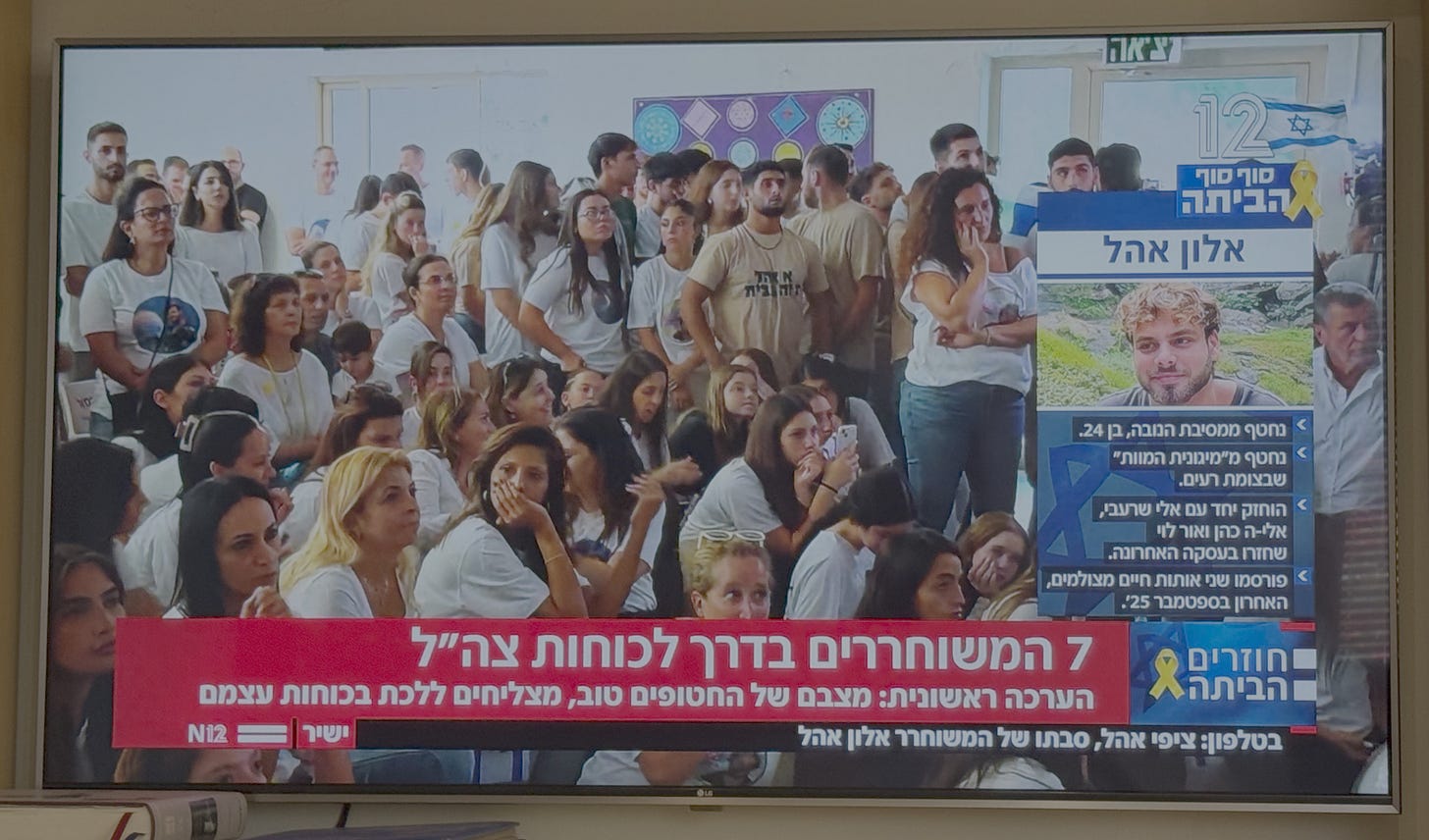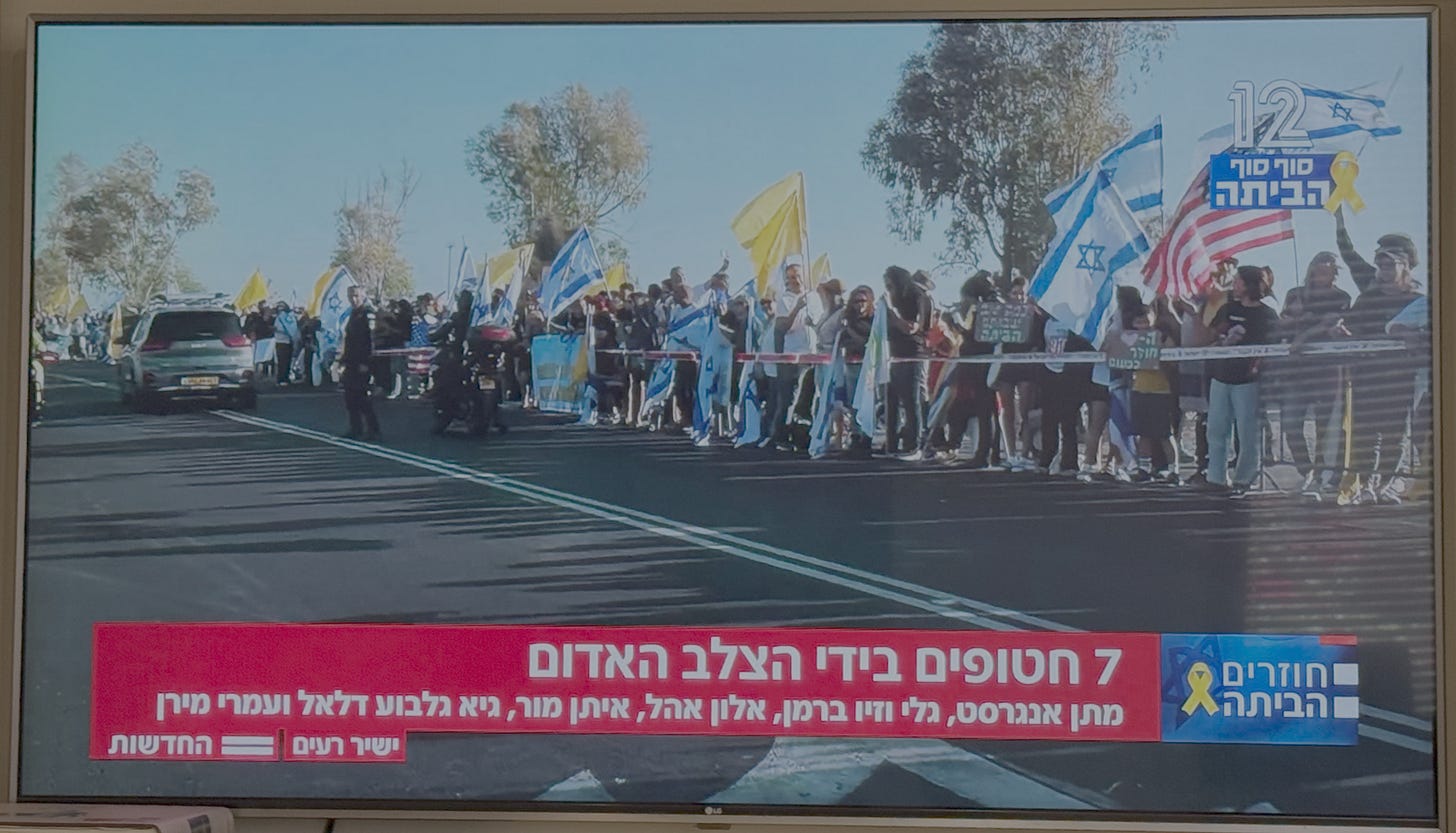"Be-Makbil" — "And simultaneously"
Description
Watching in the moonlight before day-break
Many of us were awake all night. Some of us intentionally, some of us because even if we did fall asleep, when we woke up to check the news just in case it was happening early, we found that there was no way to go back to sleep.
These lines of Natan Alterman’s iconic poem, “The Silver Platter," which he wrote in December 1947 on the eve of Israel’s creation, capture this moment of Israel’s re-creation just as accurately as they did three-quarters of a century ago:
And a nation rises—heartbroken but breathing
To receive the miracle, the only one, there is no other
As the ceremony approaches, it will stand in the moonlight
before day-break, wrapped in celebration and fear
When from the other side emerge a young man and young woman
And slowly they strode towards the nation
Here are some images of how the nation greeted them.
Many of us have watched more hours of TV news in the past two years than we did over the previous decades. We’re used to the faces of the newscasters, somber and worried, devastated and sometimes, a bit hopeful. Today, we saw expressions we haven’t seen once since October 7:
As the first group of seven, and then a second group of thirteen, were released, there was coverage of all the many ways people were spending those nerve-wracking, yet hopeful hours.
Gatherings in the home of the hostages, a massive rally at Hostage Square. When I turned on the TV at 3:00 a.m., there were already hundreds of them there … some hours later, estimates were of close to 100,000 people who wanted to witness the events on giant screens at the place that became synonymous with the public’s drive to get the hostages home.
One of the newscasters (I think it was Yonit Levi) noted that over the past two years, we’ve heard so many speeches by and interviews of the family members, and have read so many articles about and profiles of them, that we feel like we know them. Ironically, she said, the people we don’t know as well are the hostages they had worked for two years to redeem.
So as the news cut from home to home, there was a bit of a bio on the screen, giving “the basics” about the hostage whose family was being shown.
Alon Ohel:
He was kidnapped from the Nova Festival, 24 years old.
He was kidnapped from the “shelter of death” [DG —the one from which Aner Shapira had thrown back grenades that the terrorists had tossed into the shelter] at the Re’im junction.
He was held with Eli Sharabi, Elya Cohen and Or Levi, who were returned in the previous deal.
Two video’ed proofs of life were released, the last on September 25.
Along the road to Re’im, where hostages met a few family members (most waited at the various hospitals), and along the roads to hospitals and elsewhere, Israelis lined the streets where in places where they hoped the released hostages would be able to see them.









